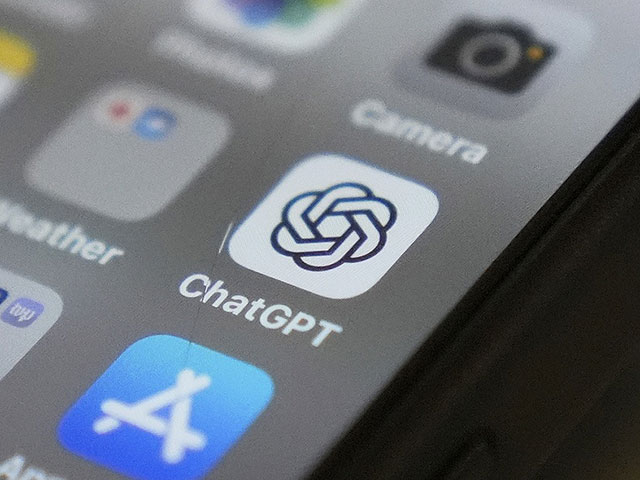? Artificial intelligence becomes an educational tool, not an advisor
On October 29, 2025, new ChatGPT usage rules took effect. From now on, artificial intelligence will no longer provide specific advice in three sensitive areas — medicine, law, and finance. The update is already reflected in the official terms of service.
The OpenAI policy now explicitly states: “Providing personalized medical, legal, or financial advice without review by a licensed professional is prohibited.”

The end of the “AI consultant” era
Until recently, users actively turned to ChatGPT for help drafting lawsuits, complaints, contracts, choosing medications, calculating dosages, investment strategies, and even assessing legal prospects.
After the October update, these functions have been officially classified as prohibited.
ChatGPT can now:
- explain mechanisms and principles of legal, medical, and economic systems;
- show templates of standard documents (contracts, powers of attorney, complaints, etc.);
- clarify terms and concepts to help users better understand the context;
- indicate what to pay attention to before consulting a professional.
But it can no longer:
- advise which medications to take, in what doses, or for how long;
- analyze legal documents or draft lawsuits for individual cases;
- give financial forecasts or recommendations to buy or sell assets;
- evaluate investment products or suggest strategies.

“I explain the mechanism but don’t prescribe treatment.”
When users try to request a specific medical recommendation, ChatGPT now replies: “I can explain the mechanism and type of treatment, but I don’t name medications or dosages.”
Moreover, the system automatically redirects users to a doctor, lawyer, or certified financial advisor if the request requires professional intervention.
Thus, OpenAI is not just tightening its safety policy but redefining the very concept of human-AI interaction: ChatGPT is now an educational assistant, not an advisor.
Why it matters: regulation and accountability
Over the past two years, the issue of AI responsibility for user advice has become one of the most discussed topics.
According to the AI Policy Watch think tank, in 2024 alone, more than 70 cases were reported in the US and EU where users complained about the consequences of recommendations received from neural networks.
For example, in medicine, users reported self-treatment following chat suggestions, while in finance — investment decisions made after AI advice.
Developers, including OpenAI, began revising their policies to avoid legal liability and increase public trust in AI technologies.
ChatGPT now operates under stricter rules, similar to those applied to search engines and educational platforms.
Finance without “where to invest”
The changes are particularly noticeable for those who used ChatGPT as an investment assistant.
Previously, the model could analyze strategies, assess risks and returns, make forecasts, and even suggest specific assets to buy.

Now such actions are classified as financial consulting, which requires licensing, so AI can only explain principles — for instance, how diversification works, what ETFs are, or how an active portfolio differs from a passive one.
In other words, ChatGPT remains an analyst but is no longer an advisor.
Legal domain adjustments
Previously, the chatbot could not only explain legal norms but also “guide users by the hand” — helping draft lawsuits, complaints, or claims, and even select relevant articles of law.
Now these functions are restricted. ChatGPT can describe a document’s structure and clarify terminology, but it cannot adapt text for individual cases.
It has become a navigation system in the world of law, but not a lawyer.
Now these functions are restricted. ChatGPT can describe a document’s structure and clarify terminology, but it cannot adapt text for individual cases.
It has become a navigation system in the world of law, but not a lawyer.
Medical ethics and AI boundaries
The new rules are especially strict for medical queries.
ChatGPT can now explain how a drug works, what therapy types exist, what a diagnosis means, or how different tests compare. However, it can no longer mention specific drugs, dosages, or treatment courses.
According to OpenAI representatives, this measure aims to prevent misuse of information and reduce self-medication risks.

New status: an educational tool
“Thus, by the end of 2025, ChatGPT is officially positioned not as a consultant or advisor, but as an educational instrument,” — the chatbot’s response states.
In essence, OpenAI is betting on user education and knowledge dissemination rather than personal application.
AI is becoming a digital mentor — helping users understand processes, but not making decisions for them.
? What’s next
Experts believe these restrictions could become an industry standard.
It’s already known that several other companies, including Anthropic and Google DeepMind, plan to implement similar filters to protect users and uphold professional ethics.
On one hand, this reduces the functionality of AI advisors.
On the other — it makes the system safer and more legally transparent, which is crucial in the age of mass AI adoption.
All content provided on this website (https://wildinwest.com/) -including attachments, links, or referenced materials — is for informative and entertainment purposes only and should not be considered as financial advice. Third-party materials remain the property of their respective owners.


